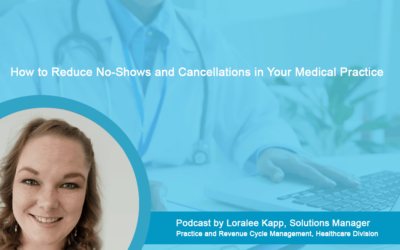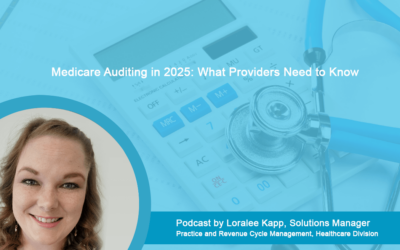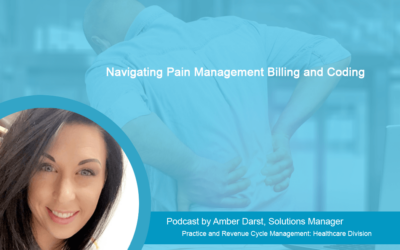An experienced neurology medical billing service provider in the U.S., Outsource Strategies International (OSI) understands the billing and coding challenges related to this specialty and can help providers submit accurate claims for optimal reimbursement.
In today’s podcast, Meghann Drella, a Senior Solutions Manager at OSI, discusses: Cluster headache – symptoms, diagnosis and treatments.
Podcast highlights
00:43 Symptoms
01:05 Diagnosis
01:17 Treatment
02:28 Billing and Coding
Read Transcript
Hi, welcome to our podcast series. My name is Meghann Drella and I’m a Senior Solutions Manager here at Outsource Strategies International. Today I’ll be discussing cluster headaches – symptoms, diagnosis and treatments.
Cluster headache is a neurological disorder that refers to a series of short but very painful headaches. Cluster headache attacks generally last between 15 minutes and 3 hours, and may occur up to 8 times a day. This is a very painful type of headache that causes intense pain in or around one eye on one side of the head. Cluster periods can last from weeks to months, usually followed by remission periods when the headaches stop. Neurology medical billing involves coding this cluster headache using relevant ICD and CPT codes.
00:43 Symptoms
During remission, no headaches occur for months and sometimes even years. Pain often occurs on one side of the head. Other common signs and symptoms during a headache include restlessness, excessive tearing, stuffy or runny nose on the affected side, redness of the eye on the affected side, forehead or facial sweating on the affected side, swelling around the eye on the affected side, and drooping eyelid on the affected side.
01:05 Diagnosis
Diagnosis for this headache type include approaches such as – neurological examination to assess the brain function, including the senses, reflexes and nerves and brain imaging tests such as MRI or CT scan.
01:17 Treatment
Treatment options aim at decreasing the severity of pain, shortening the headache period and preventing the attacks. Fast-acting medications are recommended, as the cluster headache happens suddenly. Medications can reduce the number of cluster headaches and make the condition less severe. Oral medications recommended include Octreotide, local anesthetics, such as lidocaine, or injectable form of D.H.E. 45.
In certain cases, preventive therapy is recommended to suppress the attacks. Preventive treatments may include calcium channel blockers, corticosteroids, Lithium carbonate, noninvasive vagus nerve stimulation (VNS), or occipital nerve block, depending on the length and regularity of the cluster episodes. Surgery will be recommended only if there’s no relief with aggressive treatments. Patients may be advised to follow their usual sleep routine and avoid possible triggers such as smoking or alcohol consumption, especially during the cluster period. In cases of severe pain, alternative or complementary therapies help to relieve pain. Alternative therapies that may provide relief from cluster headaches are Acupuncture, Physiotherapy or Spinal manipulation.
02:28 Billing and Coding
Neurologists should pay close attention to documentation requirements for accurate coding and billing. In practices, in-house medical billing for such neurology conditions involves many challenges such as – delay in filing multiple claims, coding errors, failing to stick to laws regarding data confidentiality, and more.
Professional medical billing companies will cover a wide range of services for neurologists which include insurance verification and authorization, patient enrolment and scheduling, coding, AR collections, and more. By outsourcing the billing and coding task, practices and their staff can focus better on patient care. I hope this helps, but always remember that documentation as well as a thorough knowledge of payer regulations and guidelines is critical to ensure accurate reimbursement for the procedures performed.
Thank you for joining me and stay tuned for my next podcast.



